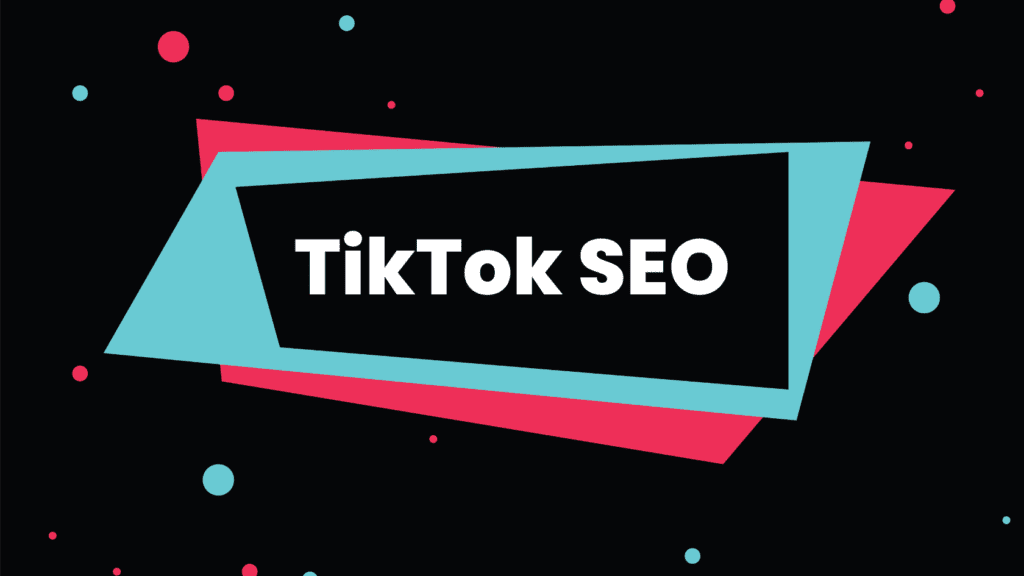SEO can often feel like a constantly moving target. With regular, often unpredictable algorithm updates and new trends emerging, it’s easy for SEO myths and misconceptions to take root.
Unfortunately, these SEO myths can lead businesses down the wrong path, wasting time, resources, and opportunities and potentially causing the site to disappear from SERPs (search engine result pages).
Common SEO Myths You Need to Stop Believing Now
It’s crucial to separate fact from fiction with SEO. The industry is full of so-called “SEO experts” and “SEO gurus” who still add meta-keywords to pages and sell you a dream based on black hat and dangerous tactics.
In this article, we’ll debunk some of the most pervasive SEO myths holding you back.

Myth 1: “SEO is All About Keywords”
Keywords are undeniably a core element of SEO. Still, the belief that SEO is solely about stuffing your content with keywords is outdated and harmful. Search engines have evolved, and so have their algorithms. Today, Google’s algorithm is far more sophisticated, focusing on user intent, content quality, and overall user experience.
The Reality: While keywords remain essential, modern SEO is about creating high-quality, valuable content that meets the needs of your audience. Keyword stuffing fails to rank your content higher and can lead to penalties. Focus instead on natural language, topic relevance, and user engagement signals.
Exploring tailored SEO consultancy services can be a game changer for businesses seeking expert guidance on crafting effective SEO strategies.
Myth 2: “Link Building is Dead”
Another common misconception is that link-building has become obsolete. With the rise of content marketing and social media, some believe that links no longer hold value in SEO.
The Reality: Link building is very much alive, but it’s no longer about quantity. Quality is the new currency in link building. Search engines prioritise links from authoritative, relevant sources. Earning high-quality backlinks through meaningful relationships and valuable content remains a powerful way to boost your SEO efforts.
At Bit Quirky, we offer comprehensive SEO packages that include strategic link-building initiatives designed to enhance your site’s authority and visibility. If you think you may have been subject to toxic backlinks that are hindering your growth, reach out, and we can take a quick (free) look and advise you.
Myth 3: “SEO is a One-Time Effort”
Many believe that once they’ve optimised their website, they can permanently remove SEO from their to-do list. This couldn’t be further from the truth.
The Reality: SEO is an ongoing process. Search engines continuously update their algorithms, and competitors constantly evolve their strategies. Regularly updating content, monitoring performance, and staying informed about industry changes are essential to maintaining and improving your search rankings.
Think of SEO as a marathon, not a sprint.
To stay competitive, consider partnering with a reputable SEO agency that understands the evolving nature of SEO.
Myth 4: “Social Media Doesn’t Impact SEO”
Some marketers think social media and SEO are separate entities with no crossover. This myth leads to the underutilisation of social media to boost SEO performance.
The Reality: While social signals like likes and shares don’t directly affect search rankings, social media plays an indirect but significant role in SEO.
Social platforms drive traffic to your website, increase content visibility, and can lead to more backlinks—all of which contribute to better search engine rankings. Integrating social media into your SEO strategy amplifies your online presence.
In recent years, TikTok has emerged as a powerful platform that not only drives massive engagement but also plays a crucial role in SEO. The short-form video app has become a significant source of traffic, particularly among younger audiences, and its influence on search behaviour is growing. TikTok content can rank in search engine results, driving organic traffic to your website or other social media profiles.
Additionally, creating content that resonates on TikTok can lead to increased brand visibility, more backlinks from users and other platforms, and a stronger overall digital footprint. By optimising your TikTok content with relevant keywords, engaging descriptions, and strategic hashtags, you can extend your SEO strategy into this vibrant, fast-paced environment. Embracing TikTok SEO as part of your broader social media strategy not only amplifies your online presence but also taps into a rapidly growing and engaged user base that can significantly enhance your overall SEO performance.
Nearly 10% of Gen Z users now prefer TikTok over established search engines like Google when looking for information—suggesting it is gaining trust and usability as a reliable source of information.

Myth 5: “Mobile Optimisation Isn’t Necessary”
Despite the shift in search engine algorithms to mobile-first, some still believe that desktop optimisation is sufficient and mobile can be an afterthought.
The Reality: Mobile optimisation is not just necessary; it’s critical.
Google’s mobile-first indexing means that the mobile version of your site is considered the primary version. A poor mobile experience can lead to lower rankings and higher bounce rates. Ensuring that your website is fully optimised for mobile devices is essential for staying competitive in search results.
“SEO myths are like shortcuts that lead to dead ends. They promise quick results but often lead to wasted efforts and missed opportunities. The real path to success in SEO is paved with facts, data, and a commitment to long-term strategies that deliver genuine value.”
— Tom, Founder of Bit Quirky Consulting
Myth 6: Having a Sitemap Improves Your SEO Ranking
Many website owners believe that simply having a sitemap will boost their SEO ranking. Sitemaps are essential for helping search engines understand the structure of your site. Still, their impact often needs to be understood.
The Reality: While a sitemap is a helpful tool that assists search engines in crawling and indexing your site, it doesn’t directly improve your rankings. A sitemap acts like a roadmap for search engines. Still, the content quality, relevance, user experience, and other factors influence your ranking. A sitemap is essential, especially for large or complex sites, but on its own, it won’t elevate your position in search results.
Myth 7: You Don’t Need to Worry About Your Title Tag or Meta Description
Some believe that title tags and meta descriptions are outdated elements that no longer significantly affect SEO. This misconception can lead to paying attention to these critical components of on-page SEO.
The Reality: Title tags and meta descriptions are still vital for SEO and are crucial in how your pages appear in search engine results. The title tag directly impacts your search ranking by helping search engines understand the content of your page. At the same time, the meta description influences click-through rates by enticing users to click on your link.
Ignoring these elements can result in lower visibility and reduced traffic. Therefore, optimising your title tags and meta descriptions with relevant keywords and compelling copy is essential for maximising your SEO potential.
Myth 8: You Don’t Need to Create Content Often
A prevailing myth is that once you have a solid amount of content on your site, there’s no need to keep producing new material regularly. This is particularly common among businesses that don’t prioritise content creation.
The Reality: Content is the lifeblood of SEO. Regularly updated and fresh content signals to search engines that your site is active and relevant, which can positively impact your rankings. Moreover, consistently publishing new content allows you to target new keywords, address current industry trends, and engage your audience.
Stagnant websites that fail to produce new content risk falling behind competitors who actively maintain their content strategy. Therefore, creating and updating content frequently is essential for sustained SEO success.
Myth 9: You Should Believe an SEO Company When They Guarantee Fast Results
In a world that values instant gratification, it’s tempting to believe SEO companies that promise quick and easy results. However, these guarantees often lead to disappointment and can even harm your site’s long-term performance.
The Reality: SEO is a long-term strategy that requires patience and consistency. Achieving significant results takes time, and anyone who promises instant rankings is likely using questionable tactics that could lead to search engine penalties. It is important to work with an SEO company that sets realistic expectations and focuses on sustainable growth rather than quick fixes.
True SEO success is built over time through careful planning, consistent effort, and adherence to best practices.
Myth 10: If You Don’t Get the First Position, Your SEO is Failing
Many people equate successful SEO with securing the number one spot in search engine results. While achieving the top position is desirable, this belief can lead to unnecessary stress and unrealistic expectations.
The Reality: While being in the top position can drive significant traffic, it’s not the only measure of SEO success. Pages that rank in the top five or even on the first page still receive a substantial amount of traffic and can be considered successful. Additionally, focusing solely on ranking can cause you to overlook other important metrics like engagement, conversions, and user satisfaction. A well-rounded SEO strategy aims to improve these areas, contributing to the overall success of your website, regardless of whether you hold the top spot.
“Having been in the SEO industry for over 20 years, I’ve seen trends come and go, but one thing remains constant: staying adaptable. SEO isn’t just about tactics; it’s about understanding the broader landscape and continuously evolving with it. At BQC, we pride ourselves on cutting through the noise and delivering strategies that stand the test of time. SEO myths and misconceptions are at the core of 85% of our enquiries at BQC.”
— Tom, Founder of Bit Quirky Consulting

Wrapped: Common SEO Myths You Need to Stop Believing Now
SEO myths are like mirages—they can seem convincing but lead you astray. The consequences of following these misconceptions can be significant, ranging from missed opportunities to direct penalties from search engines.
The first step in building a successful SEO strategy is acknowledging that the landscape is complex and ever-changing. It’s not about following outdated practices or chasing every new trend but understanding the principles driving success. This means focusing on high-quality content, user experience, and sustainable practices like ethical link-building and ongoing site optimisation.
Moreover, relying on SEO myths can lead to wasted resources. For instance, keyword stuffing seems like a shortcut to higher rankings. Still, it can damage your site’s credibility and user experience, leading to lower rankings and higher bounce rates. Similarly, dismissing the importance of mobile optimisation in a world where mobile traffic dominates could severely limit your reach and engagement.
The most effective SEO strategies are those built on facts and data-driven insights. They require a commitment to continuous learning and adaptation, whether through regular content updates, staying informed about algorithm changes, or integrating new tools and technologies that enhance your site’s performance.
For businesses looking to thrive in this environment, it’s vital to approach SEO as an ongoing investment rather than a one-time effort. Partnering with a senior SEO consultancy can make a difference. By leveraging expert guidance, you can confidently navigate the complexities of SEO, ensuring that your strategy is resilient and responsive to change.
Finally, it’s important to remember that SEO isn’t just about rankings—it’s about delivering value to your audience. When you focus on creating content that genuinely helps your users, providing a seamless experience across all devices, and building authentic connections through quality links, your SEO efforts will naturally lead to better visibility, higher traffic, and, ultimately, more conversions.
Ultimately, success in SEO comes down to one simple truth: the best strategies are those rooted in reality, guided by experience, and executed precisely. So, as you move forward, let go of the myths that may be holding you back and embrace a fact-based approach to SEO that will position your business for long-term success in the ever-evolving digital landscape.



